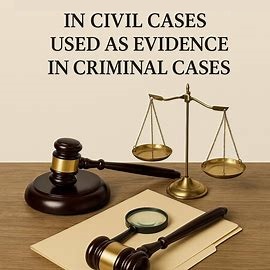Analisis Hukum Terhadap Obyek Sengketa Dalam Perkara Perdata Dijadikan Barang Bukti Dalam Perkara Pidana
Abstrak
This study aims to determine and understand the differences in proof in civil law and criminal law, and the legal implications of using civil dispute objects as criminal evidence. This study uses a normative research type with a legislative approach and an analytical approach. The types of legal material sources include primary, secondary, and tertiary legal materials. Legal analysis will be studied in a qualitative prescriptive manner. The results of this study show differences in proof in criminal and civil law. The main difference in proof in civil and criminal cases lies in the purpose and standard of proof. In criminal cases, proof aims to find the material truth, namely, the actual truth of a criminal event. Meanwhile, in civil cases, proof aims to find formal truth, where the judge is only bound by the evidence submitted by the parties. In addition, the differences between the two can be seen from the aspects of evidence, the role of the judge, the standard of proof of the strength of the evidence, and the assessment of proof. The use of civil dispute objects as evidence in criminal cases has legal implications that need to be considered. The subject of a civil dispute, initially the focus of a civil case, can be used as evidence in a criminal case if it involves elements of a criminal offence. However, its use as evidence must comply with applicable legal procedures and must not violate the rights of the parties involved.




1.png)





.png)

.png)







